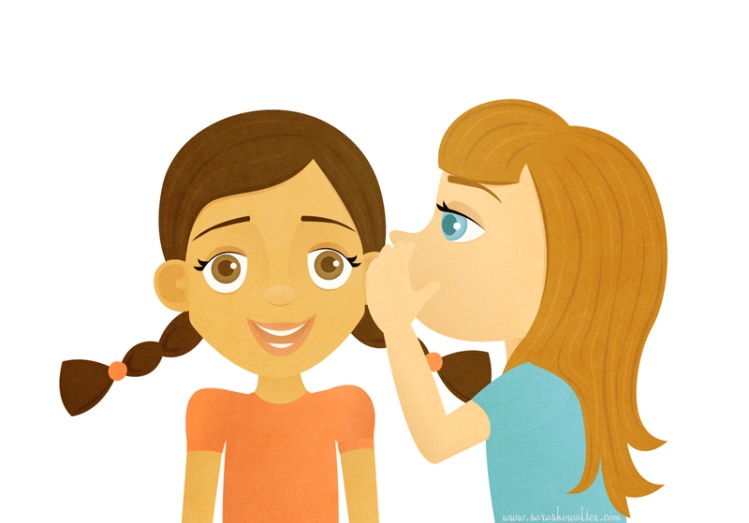
Why Kids Tattle—and What to Do
Don't be worried if your child starts tattling -- learn the real reasons behind it to prevent her from becoming a full-blown tattletale.
Four- and 5-year-olds are learning so many things at such a fast pace that they can have a hard time keeping track of everything that's expected of them. When they do get something right, they expect everyone else to abide by the same rules. And when these perceived rules are "broken" by others, this can lead to tattling. It's important to prevent tattling from becoming a habit or to stop it immediately, as it can cause unwanted issues with friends and teachers. Before you take steps to prevent it, though, you'll need to understand the root causes. "There are a lot of reasons why little kids might tattle," says Lawrence Balter, Ph.D., a child psychologist and parenting expert. "And while it's usually [physically] harmless, tattling can be [emotionally] hurtful to the victim." Here, we've outlined the common reasons why your child might tattle -- and how you can help nix the behaviour in the bud.
The Anatomy of a Tattle
It's about rules. Young kids tend to be very literal, as their cognitive development cannot recognize abstract reasoning yet, Dr. Balter says. This means that when they do catch on to how to follow rules, usually at around age 7, they expect those rules to be inflexible, and it feels personal to them when other kids abide by their own, or different, set of rules.
It's about attention or status. Often, a tattler is only looking to be noticed. If he's feeling left out or abandoned, he may tell on someone to build up his own status or to make other kids look bad so he can be favoured.
It's about revenge. Most tattles are generally harmless, but occasionally a tattle can have a sinister root. "Sometimes it's not only about raising status, but the child wants to hurt the other person," Dr. Balter says. "A good way to get back at a kid who has hurt your feelings is to say something negative about [him], to get [him] in trouble."
It's about power. Some tattlers always want to be in charge. A tattler seeking power may likely have a strong-willed Type A personality and may want to put someone else in line.
How to Prevent Tattling
Once you understand some of the causes of tattling, you can work on preventing the behaviour in your own child.
Point Out Tattling. If you and your child catch another kid tattling, use the opportunity as a teaching moment. "Bring the action to her attention, and ask what she thinks about what the kid is doing. Does she understand that what the child is doing is tattling, and why it's wrong?" Dr. Balter says. Take time to talk about what the other child could have done instead of tattling (ignore it, walk away, and so on).
Explain Fairness and Justice. "Kids are so literal, and sometimes their tattling is about making the other kid look bad to get that sense of justice," Dr. Balter explains. When talking to your child, say something like, "Sometimes people don't follow the rules the way they should. I know it's upsetting to you because you are trying to do the right thing." Tell your child that she can't change the way other children behave, but that the most important thing is always keep her own actions fair and just.
Explain Your Expectations. Explain that, although tattling on small actions is bad, it's important to speak up if something appears dangerous. You wouldn't want your child complaining every time Suzie steals a crayon from her, but you would need your child to mention if Suzie is pulling the dog's tail, a harmful action. The difference between tattling because something is significant or dangerous and tattling on something that's not is very subtle and it can be difficult to expect a child to understand it. In Social Rules for Kids, author and speech-language pathologist Susan Diamond, M.A., suggests one way to guide kids on what to say when something could be dangerous: Explain to your child that she could say "'I tell the teacher when...I feel threatened, scared, nervous, or hurt by a student or group of students.'" For the opposite approach, kids should practice saying, "'I do not tell the teacher when...a student is not right, calls me a name, calls someone else a name, taps a pencil.'" Then help kids focus on what they should do instead, like "relax, focus on my work, ignore, [and so on]," Diamond advises.
What to Do If Your Kid Already Tattles
This might seem counterintuitive, but do not make a big deal about tattling. "When your child tattles, this gives you a chance to investigate what his motivation is," Dr. Balter says. Don't chastise him; instead, point out (gently) that if he keeps calling attention to his friends' behaviour in a negative way and getting them in trouble, they won't want to play with him. You can try other tactics. "If you know your kid tends to feel intruded upon and tattles mostly because he doesn't like others playing with certain toys, designate beforehand what everyone will play with and what you'll put away," Dr. Balter says. "That's one easy way to stop kids from running up to you and tattling." One more thing to keep in mind: For kids around 3 to 4 years old, tattling can be a sign of exhaustion. "When kids are cranky and tired, anything goes," Dr. Balter explains. Taking a short break for a nap, TV, or lunch could help keep the bad behaviour at bay.
Source: - Parents Blog
